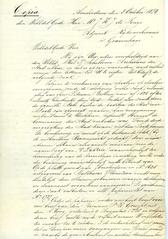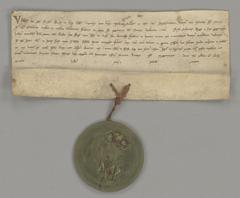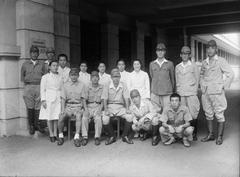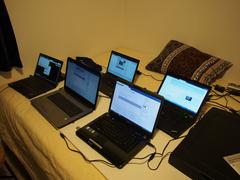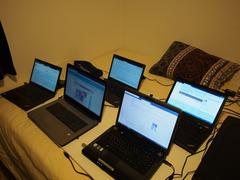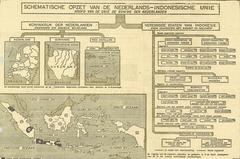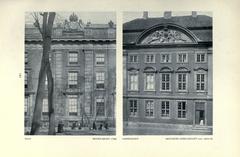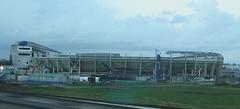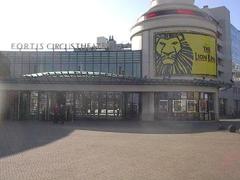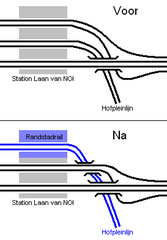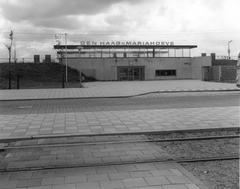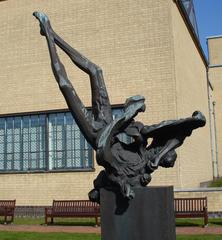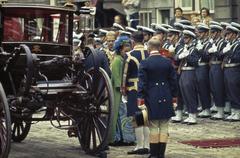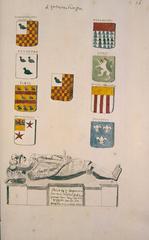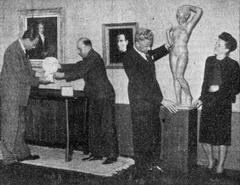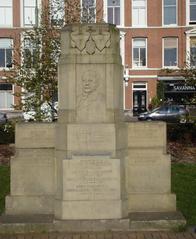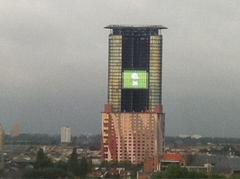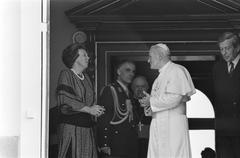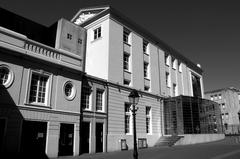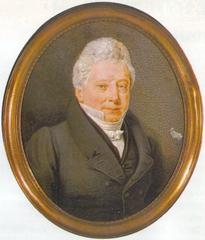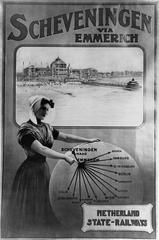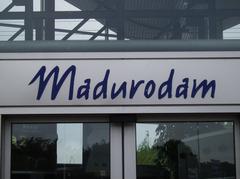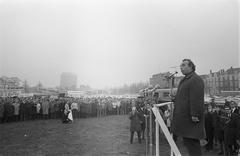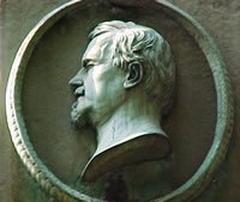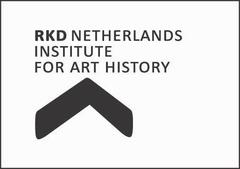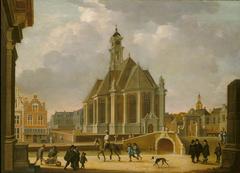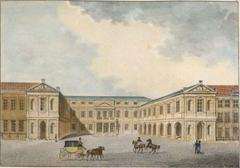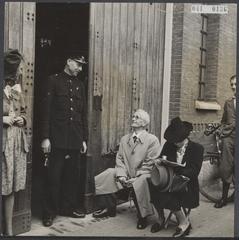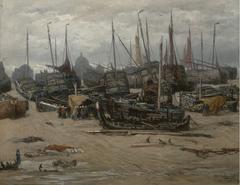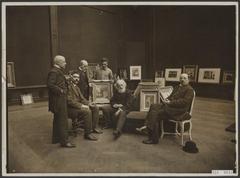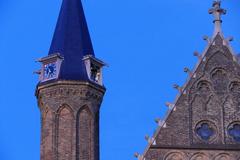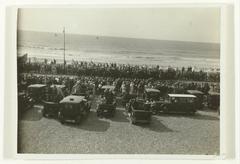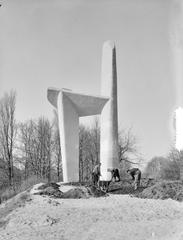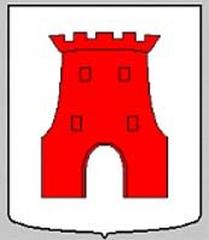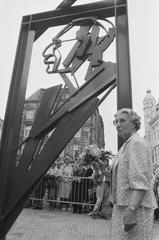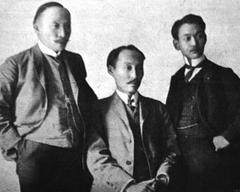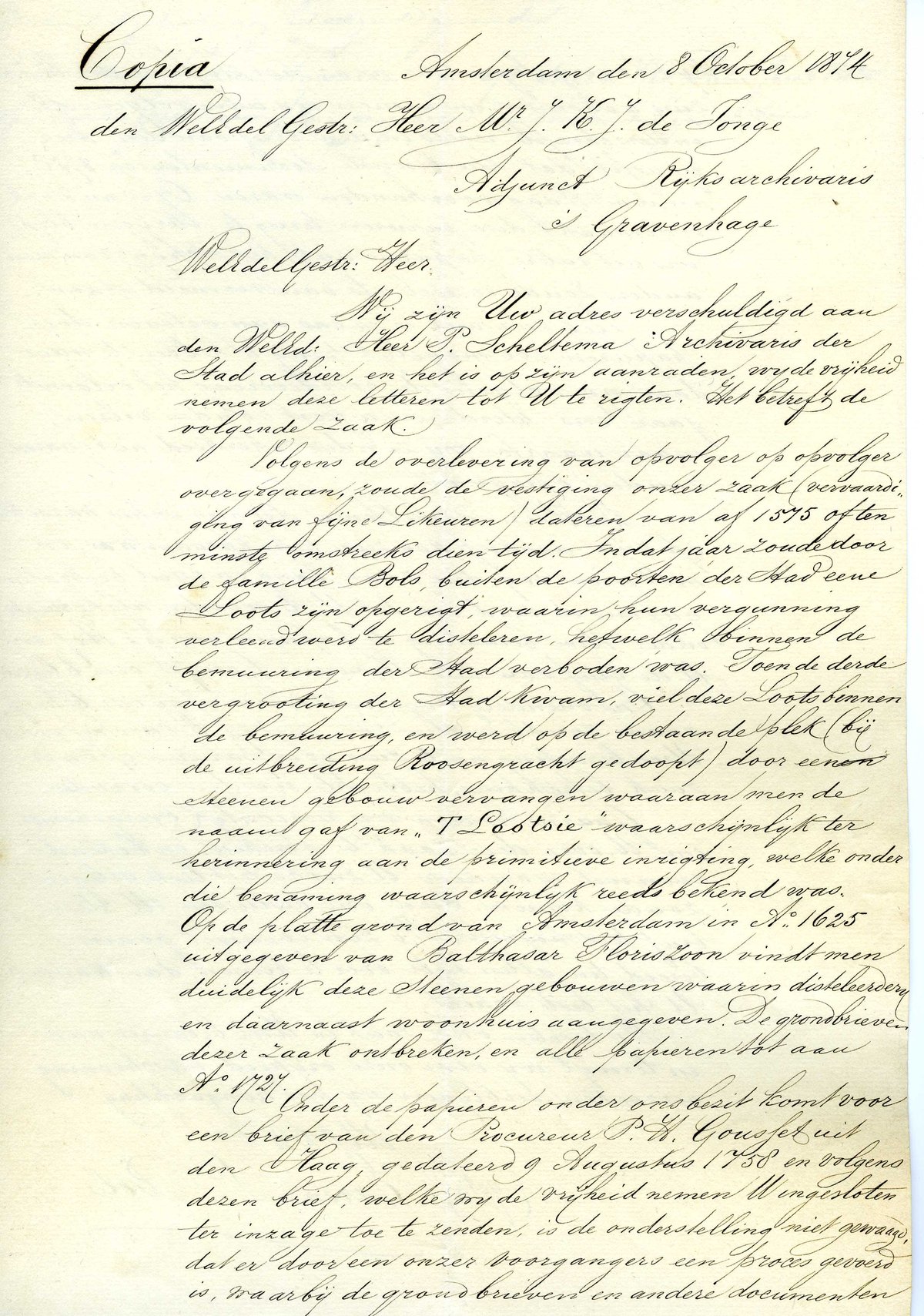
Nationaal Archief The Hague: Visiting Hours, Tickets, and Historical Insights
Date: 14/06/2025
Introduction
The Nationaal Archief (National Archives) in The Hague is the Netherlands’ foremost repository of documentary heritage, preserving nearly a millennium of history. As a pillar of Dutch cultural memory, the archive offers a window into the nation’s political, social, and global legacy through extensive collections of governmental records, personal papers, photographs, maps, and artifacts. Whether you are a researcher, history enthusiast, or tourist, the Nationaal Archief provides a unique and accessible experience, combining rich historical resources with modern visitor amenities. This guide consolidates essential information about visiting hours, ticketing, facilities, and highlights the archive’s significance for Dutch and international heritage.
For official updates and detailed visitor information, refer to the Nationaal Archief website, Den Haag.com, and DutchCulture.
Table of Contents
- Introduction
- Origins and Historical Development
- Collections and Notable Holdings
- International and National Significance
- Digitization and Modernization
- Visitor Information
- Guided Tours, Exhibitions, and Events
- Research Facilities and Digital Resources
- Frequently Asked Questions (FAQ)
- Practical Tips and Surroundings
- Conclusion and Further Resources
Origins and Historical Development
The Nationaal Archief was formally established in 1802, following the Batavian Revolution, to centralize and safeguard government documents. Over time, its scope broadened to include personal collections, business archives, and international materials, mirroring the administrative and social evolution of the Netherlands (Nationaal Archief; Den Haag.com).
Collections and Notable Holdings
The archive manages approximately 142 kilometers of documents, 15 million photographs, and nearly 300,000 historical maps and drawings (Museum.nl; WhichMuseum). Key highlights include:
- VOC and Colonial Archives: Shipping logs, trade records, and correspondence from the Dutch East and West India Companies, inscribed on UNESCO’s Memory of the World Register (DutchCulture; Nationaal Archief - Wikipedia).
- Act of Abjuration (1581): The Dutch declaration of independence from Spain.
- Constitutional Documents: Including versions of the Dutch constitution and significant treaties.
- CABR Dossiers: Records of post-WWII collaboration investigations (Nationaal Archief - CABR).
- Photographic Archives: Visual documentation of Dutch society from the 19th century onward, including the Spaarnestad Photo collection.
- Personal Papers: Diaries and correspondence of political figures and ordinary citizens.
Special collections and digital resources, such as the online catalogue, expand access to these materials.
International and National Significance
Beyond preserving national documents, the Nationaal Archief is recognized internationally for its stewardship of Dutch colonial and global trade records. The VOC archives, maintained in cooperation with institutions in South Africa, India, Sri Lanka, and Indonesia, offer crucial resources for understanding interconnected global histories (DutchCulture). The archive’s holdings are vital for legal, political, and postcolonial studies and support both national identity and international heritage cooperation.
Digitization and Modernization
The Nationaal Archief is at the forefront of archival digitization, offering extensive online access to documents, images, and maps. Initiatives such as Digitale Duurzaamheid (Digital Permanency) ensure long-term preservation. Online platforms like the Atlas of Mutual Heritage and Genlias enable remote research, while digital exhibitions and virtual tours make the collections accessible worldwide (Culture360).
Visitor Information
Opening Hours
- General Opening: Tuesday–Friday, 9:00 AM–5:00 PM
- Saturday: 10:00 AM–4:00 PM
- Closed: Sundays, Mondays, and public holidays
Check the official website for updates and possible changes on special dates.
Tickets and Entry
- General Admission: Free
- Exhibitions: “Het Geheugenpaleis” (The Memory Palace) is free; some temporary exhibitions may require tickets (typically €5–€12, with discounts for children, students, and Museumkaart holders).
- Guided Tours and Events: May require advance booking and ticket purchase (Events Calendar).
Reservations
- Reading Room: Reservations are required for access to original documents; book via the archive’s website.
- CABR and Special Collections: Advance reservation is essential due to high demand.
Accessibility and Facilities
- Fully wheelchair accessible with ramps, elevators, and adapted restrooms.
- Lockers for storing personal items.
- Free Wi-Fi throughout the building.
- On-site café and museum shop.
- Service animals welcome; wheelchairs available on request.
Directions and Transport
- Address: Prins Willem-Alexanderhof 20, 2595 BE Den Haag
- By Public Transport: Adjacent to The Hague Central Station (Den Haag Centraal), accessible by train, tram, and bus.
- By Car: Limited paid parking nearby; public transport is recommended.
- Cycling: Bicycle parking available in line with The Hague’s bike-friendly infrastructure.
Guided Tours, Exhibitions, and Events
- Guided Tours: Offered in Dutch and English; advance booking recommended.
- Educational Programs: Tailored for school groups, families, and researchers.
- Exhibitions: Thematic displays such as “Highlights in Perspective” and “De oorlog die bleef,” with interactive and multimedia elements (Nationaal Archief - Highlights; WhichMuseum).
- Workshops, Lectures, and Family Days: Check the events calendar for details.
Research Facilities and Digital Resources
- Reading Rooms: Quiet, well-lit areas with individual workspaces, digital catalogues, and microfilm readers.
- Document Access: Request and reserve materials online; expert staff available for research support.
- Reproductions: Order scans online for €16.75 per inventory number (up to 250 scans); larger materials quoted individually.
- Digital Collections: Extensive online access to documents, images, and maps (Online Catalogue).
Frequently Asked Questions (FAQ)
Q: Is admission to the Nationaal Archief free?
A: Yes, general entry is free. Some temporary exhibitions or guided tours may require tickets.
Q: What are the visiting hours?
A: Tuesday–Friday 9:00 AM–5:00 PM; Saturday 10:00 AM–4:00 PM; closed Sundays, Mondays, and public holidays.
Q: Are reservations required?
A: Yes, for the reading room and access to original documents. Book via the official website.
Q: Is the facility accessible for visitors with disabilities?
A: Yes, it is fully accessible.
Q: Can I photograph documents?
A: Non-flash photography is permitted for personal use; check with staff for exhibition-specific restrictions.
Q: Are there guided tours?
A: Yes, in Dutch and English. Book online or at the information desk.
Q: How do I get there?
A: The archive is next to The Hague Central Station and easily reached by public transport.
Q: What amenities are available?
A: Lockers, Wi-Fi, a café, museum shop, and accessible restrooms.
Practical Tips and Surroundings
- Arrive early during special exhibitions and holidays for a quieter experience.
- Combine your visit with nearby attractions: Mauritshuis, Binnenhof, and Peace Palace are within walking distance (The Hague attractions).
- Photography is permitted without flash in most areas.
- Check health and safety guidelines on the official website before your visit.
Conclusion and Further Resources
The Nationaal Archief in The Hague is an essential destination for anyone exploring Dutch history, culture, or genealogy. With its rich collections, free general admission, accessible facilities, and a schedule of engaging exhibitions and events, the archive provides an immersive experience for all visitors. Plan your visit by consulting the latest information on opening hours and ticketing, and consider using the Audiala app for curated tours and historical insights. For more information, visit the Nationaal Archief official site.
References and Further Reading
- Nationaal Archief, n.d., Official Website (https://www.nationaalarchief.nl/en)
- Den Haag.com, n.d., The National Archive (https://denhaag.com/en/national-archive)
- DutchCulture, n.d., National Archives of the Netherlands (https://dutchculture.nl/en/location/national-archives-netherlands)
- Geheugen van Nederland, n.d., Nationaal Archief Collections (https://geheugen.delpher.nl/en/geheugen/pages/instelling/Nationaal+Archief)
- Museum.nl, n.d., Nationaal Archief (https://www.museum.nl/en/nationaal-archief)
- WhichMuseum, n.d., National Archive The Hague (https://whichmuseum.com/museum/national-archive-the-hague-332)
- Nationaal Archief - Wikipedia, n.d., Nationaal Archief (https://en.wikipedia.org/wiki/Nationaal_Archief)
- Nationaal Archief - Highlights, n.d., Archival Treasures (https://www.nationaalarchief.nl/en/explore/highlights-in-perspective)
- Nationaal Archief - CABR, n.d., Research in CABR (https://www.nationaalarchief.nl/onderzoeken/nieuws/onderzoek-doen-in-het-cabr-in-2025)
- Culture360, n.d., Nationaal Archief - National Archives Netherlands (https://culture360.org/resources/nationaal-archief-national-archives-netherlands/)
